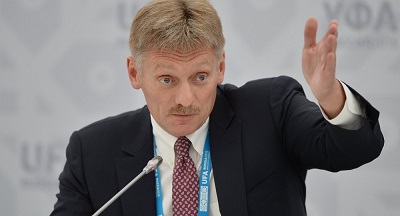“Those responsible for the situation in East Ghouta are those who support the terrorists, those that are still there. As you know, neither Russia, nor Syria, nor Iran belong to the category of such states, for it is they who on the ground are engaged in an irreconcilable struggle against the terrorists in Syria,” Kremlin spokesman Dmitriy Peskov told reporters, commenting on statements about Russia’s and Iran’s alleged responsibility for the situation in East Ghouta.
According to the Sputmiknews,speaking about joining the UN resolution on the introduction of a ceasefire in Syria, proposed by Sweden, Peskov re-addressed the question to the Foreign Ministry.
“Now I cannot answer this question, they are engaged in the line of our diplomatic department, our mission in New York, it is better to address this issue to the Foreign Ministry,” he said, adding that the situation in the region remains wanting.
Earlier, the delegations of Sweden and Kuwait shared with the Security Council a draft resolution on the introduction of a 30-day ceasefire in Syria for the delivery of humanitarian aid and medical evacuation. The voting on the draft is expected to take place on Thursday.
“You know that the work as a whole is rather tense. The situation really remains wanting, mildly speaking. Therefore, this issue is now very concentrated,” Peskov stated.
The Permanent Mission of Sweden announced on Wednesday evening that the draft resolution was closed for amendments and was ready to be voted on.
At the same time, Russian Deputy Foreign Minister Sergei Ryabkov stated on February 21 that Russia was working within the UN Security Council to prepare a separate resolution on humanitarian issues in Eastern Ghouta.
The territory of Eastern Ghouta is one of four Syrian de-escalation zones created during the Astana talks on Syrian reconciliation. Russia, Iran and Turkey serve as guarantors of the de-escalation agreements, which apply all sides except militants linked to the al-Qaeda terrorist group .
M.A.

